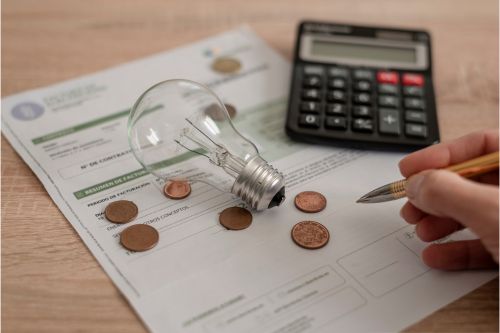Table of Contents
- Finding your home abroad | A student’s guide
- Important considerations for students renting a place
- Budgeting
- Location
- Lease agreements
- Roommates or solo living
- Inspect the property
- Security deposits
- Utility costs
- Tenant rights and responsibilities
- Renter’s insurance
- Transportation and parking
- Community rules
- Emergency contacts and maintenance
- Leaving the rental
- Key takeaways
- FAQs
Finding your home abroad | A student’s guide
As students embark on their academic journeys abroad, one of the most important decisions they face is choosing a place to live. Renting a property is a common choice, but it’s a decision that you shouldn’t take lightly. Keeping this in mind, we will explore the key considerations every student should focus on when searching for a place to live in this Renting 101 guide. From budgeting and location to lease agreements and roommates, we’ll cover the essential aspects of Renting to help students make informed choices.
Important considerations for students renting a place
Finding a house as a student is a significant decision that requires careful thought and planning. Whether you’re studying in your home country or embarking on an academic journey abroad, where you choose to live can greatly impact your overall experience. Here, we’ll discuss the key considerations necessary for your search for accommodation.
Budgeting
The first and foremost consideration for any student looking to rent a house is budgeting. You should have a clear understanding of your financial situation before even starting your search. Calculate your monthly expenses, including rent, utilities, groceries, transportation, and personal expenditures. It’s crucial to ensure that your rent doesn’t exceed 30% of your income to maintain financial stability. Keep in mind that additional expenses, such as security deposits and application fees, might be required upfront.
Location
When choosing a rental property, its location is critical. Consider its proximity to your educational institution, grocery stores, public transportation, and recreational facilities. Living closer to campus can save time and money on transportation. However, it’s also essential to research the neighborhood’s safety, reputation, and overall suitability for your needs.
Lease agreements

A legally binding contract between you and the landlord is nothing but a lease agreement. It outlines the terms and conditions of your rental. Before signing, carefully review the lease to understand rent, security deposits, maintenance responsibilities, and other stipulations. Ask questions if anything is unclear, and consider seeking legal advice if necessary.
Roommates or solo living
Deciding whether to live alone or with roommates is an important consideration. Living with roommates can help reduce the burden of expenses, but it also comes with its challenges. If you opt for roommates, ensure you establish clear communication and agreements regarding rent, utilities, and household responsibilities. Solo living may provide more privacy, but you have to pay the entire rent.
Inspect the property
Before committing to a rental, visit the property and inspect it thoroughly. Check for any signs of damage, such as water leaks, pest infestations, or malfunctioning appliances. Take photographs and document any issues to avoid disputes later. Ensure that the property is clean and well-maintained when you move in.
Security deposits
Landlords often require a security deposit to cover potential damages. Know your rights regarding the security deposit, such as how your landlord will hold and return it. Keep records of the property’s condition when you move in, as it can help ensure you receive your deposit back when you move out.
Utility costs

Understanding utility costs is crucial for a better living experience. Rent for some houses includes utility costs, while others require tenants to cover these expenses separately. Be prepared for utility costs, which can vary significantly based on the property’s size and location. Take steps to minimize energy consumption to keep bills in check.
Tenant rights and responsibilities
Familiarize yourself with the rights and responsibilities of tenants in your area. These rights vary by location and can include regulations on repairs, privacy, and eviction procedures. Knowing your rights will help protect you from potential landlord abuses or misunderstandings.
Renter’s insurance
Renter’s insurance is often overlooked but is a wise investment. It can protect your belongings in case of theft, damage, or natural disasters. Consider investing in renter’s insurance, as it is typically affordable and offers peace of mind.
Transportation and parking
Consider your transportation needs when choosing a rental. Living near bus or train stations can be convenient if you don’t have a car or other means of transport. If you do have a vehicle, ensure the property offers adequate parking options and inquire about any associated fees.
Community rules
Some rental properties, particularly in apartment complexes or student housing, may have specific rules and regulations. Understand and adhere to these rules to maintain a harmonious living environment.
Emergency contacts and maintenance
Know who to contact in case of emergencies or maintenance issues. Maintain open communication with your property management or landlord to promptly address all issues.
Leaving the rental
Read the lease or rent agreement carefully before leaving your rental. Typically, you’ll need to provide notice to your landlord before moving out. Follow the lease terms, clean, and repair any damage you’re responsible for. Doing all this will ensure a smooth transition for you.
Key takeaways
- Consider proximity to your educational institution and essential amenities while ensuring the neighborhood is safe and suitable for your needs.
- Review and understand the lease agreement carefully and then sign it. You can also get legal advice if necessary.
- Prioritize a thorough property inspection before moving in to document any issues and ensure the property’s cleanliness and maintenance.
- Adhere to community rules and regulations within your rental property to maintain a harmonious living environment.
- Keep emergency contacts and maintenance procedures readily accessible for quick resolution of issues.
- Understand your rights regarding security deposits and how you should handle and return them.
We value your feedback! Share your insights in the comments below. If you have further questions or need more information about studying abroad, don’t hesitate to reach out to us. We’re here to assist you with any queries you may have.
Liked this blog? Read next: 8 best Rikkyo University internship opportunities
FAQs
Q1. What is the duration of the lease agreement?
Ans- Leases can vary in duration, but a common option is a 12-month lease. However, some landlords offer shorter or more flexible leases.
Q2. Can I sublet my room if I’m away during the summer or a semester?
Ans- Some leases allow subletting, while others may prohibit it. Check your lease agreement and discuss it with your landlord.
Q3. Is it better to rent a furnished or unfurnished apartment?
Ans- Furnished apartments come with furniture, but they might be more expensive. Unfurnished apartments allow you to choose your own furniture. Hence, this decision depends on your preferences and budget.






